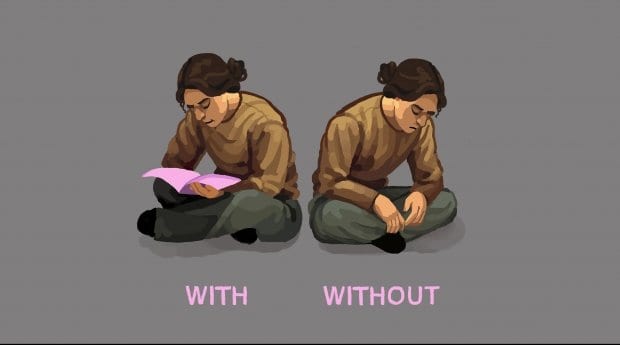Before Xtra, Fab, The Body Politic or any of the other LGBT publications that Canada has seen, there was Les Mouches Fantastiques.
In the autumn of 1917, a young woman named Elsie Alice Gidlow (later known as Elsa) was living with her large family in Montreal. She made a meagre living doing office work but longed for travel and the bohemian life. She published a letter in the Montreal Daily Star under a pseudonym, asking if there were any organizations of artists or writers in the city. A second letter published under her own name appeared a couple of weeks later, suggesting that the original inquirer (herself) and others interested should meet at her apartment.
Only a few among the motley crew had any real promise. Most of the men who showed up were middle-aged and looking to pick up, given the female name signed with the second letter, and left disappointed. The only man who really stood out to Gidlow was the “most astonishing, elegant being … a beautiful, willowy blond” named Roswell George Mills, a financial-page editor at the Star who also wrote a pseudonymous female advice column — possibly Jessie Roberts’s What Girls May Do.
Mills was unabashedly, flamboyantly homosexual. “Roswell confided his personal crusade to me,” Gidlow wrote in her autobiography. “He wanted people to understand that it was beautiful, not evil, to love others of one’s own sex and make love with them. Roswell had divined my lesbian temperament and was happy to proselytize; the veil of self-ignorance began to lift.” Mills introduced her to the work of Oscar Wilde, Edward Carpenter, Verlaine and modern psychologists who described homosexuality in more concrete medical — rather than condemnatory moralistic — terms. She built on his reading list and began to find her own authors to venerate. He nicknamed her Sappho, and they became lifelong friends.
Early in their writing careers, Gidlow and Mills were very involved in the amateur journalist community in North America, a loose network of organizations and self-publishers. Canada was well into a bloody war, which Mills had escaped as a 4F — “physically, mentally, emotionally and morally incompetent for the glory of killing,” he said — and this, along with their sexual radicalism and their weakening tolerance for Christian patriarchy, coalesced into Les Mouches Fantastiques (originally titled Coal from Hades).
The publication consisted mostly of poetry by Gidlow about women, with translations, allegorical stories, dramatic writing and “articles on ‘the intermediate sex’” by Mills, as well as contributions that satirized society or panned the ongoing war. Gidlow assumed the publication went out to only a hundred of their fellow underground writers, but she eventually received a letter from a woman in Havana who was impressed with the work. A priest and writer from South Dakota read Les Mouches, fell in love with Mills and moved to Montreal in the hopes of being with him.
The radical publication drew the disdain of many, including famed horror writer and fellow amateur journalist HP Lovecraft. A xenophobe and homophobe, especially in his private writings, Lovecraft decried Les Mouches in his own self-published paper, The Conservative: “What words of beauty — pure Uranian beauty — are utterly denied them on account of their bondage to the lower regions of the senses!” While he likely never met Gidlow or Mills, Lovecraft had a habit of self-publishing criticisms of the work of other amateur journalists — much like blogs today.
Les Mouches Fantastiques did not have a long run, as Gidlow and Mills eventually left Montreal for New York, seeking greater freedom and more opportunities.
As a member of the naive, Google-everything generation, I casually sent emails to the Toronto Public Library Archives and the Canadian Lesbian and Gay Archives, assuming at least one would be able to haul a stack of Les Mouches out of the vaults. Neither of them has copies. The CLGA advised me that Les Archives Gaies du Québec has a single copy, and historian Ken Faig Jr writes that the American Antiquarian Society has three issues and the University of South Florida has one. It’s a sad reminder never to take the words from the past for granted — they might be gone when you need them most.
History Boys appears twice monthly on Daily Xtra


 Why you can trust Xtra
Why you can trust Xtra


